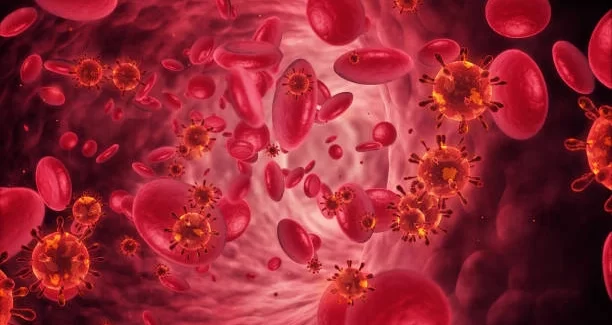20 Health Reasons Not To Eat Your Vegetables

Posted Date: June 12th, 2023
While vegetables are generally considered a crucial part of a healthy diet. it iss important to note that some individuals may have specific dietary requirements, allergies or health conditions that make certain vegetables unsuitable for consumption. However it is rare to find health reasons not to eat vegetables in general, as they offer numerous health benefits. Here are 20 hypothetical health reasons some individuals may consider:
1. Food Allergies: Some individuals may have allergies to specific vegetables such as nightshade vegetables (like tomatoes, eggplants) or cruciferous vegetables (like broccoli, cauliflower) which can cause allergic reactions or digestive issues.
2. Gastrointestinal Sensitivities: Certain vegetables such as onions, garlic and cruciferous vegetables, can cause gas, bloating or digestive discomfort in individuals with sensitive digestive systems.
3. Kidney Disease: Individuals with advanced kidney disease may need to limit their intake of high potassium vegetables. Such as potatoes and leafy greens to prevent electrolyte imbalances.
4. Specific Medications: Some medications may interact with certain vegetables. For instance individuals taking blood thinning medications like warfarin should be cautious with consuming excessive amounts of leafy greens high in vitamin K.
5. Thyroid Conditions: Certain vegetables known as goitrogenic foods can interfere with thyroid function in individuals with existing thyroid conditions. These vegetables include broccoli, Brussels sprouts, kale and cabbage.
6. Surgery Preparation: In some cases individuals may need to temporarily avoid high fiber vegetables before surgery to prevent complications during the procedure.
7. Specific Diets: Certain diets or eating plans such as ketogenic diets that emphasize very low carbohydrate intake may restrict the consumption of starchy vegetables.
8. Chemical Contamination: Some vegetables, particularly those grown in contaminated soil or exposed to pollutants may pose health risks if they contain harmful chemicals or heavy metals.
9. Individual Taste Preferences: Personal taste preferences can play a role in whether individuals choose to eat certain vegetables or not, although it is important to find alternative sources of essential nutrients.
10. Digestive Disorders: Individuals with specific digestive disorders such as Crohn’s disease or ulcerative colitis. They should need to avoid certain vegetables that could trigger symptoms or exacerbate their condition.
11. Organic Produce Availability: Some individuals may choose not to consume conventionally grown vegetables due to concerns about pesticide residues and opt for organic alternatives. However organic produce may not be readily available or affordable for everyone.
12. Sensory Issues: Some individuals, particularly children or individuals with sensory processing disorders may have difficulty accepting or tolerating the taste, texture or appearance of certain vegetables.
13. Limited Access To Fresh Vegetables: Individuals living in food deserts or areas with limited access to fresh produce may struggle to incorporate a variety of vegetables into their diet.
14. Poor Dental Health: Individuals with dental issues or oral sensitivities may have difficulty consuming raw or crunchy vegetables and might require alternative cooking methods or softer options.
15. Individual Dietary Preferences: Personal preferences or cultural dietary choices may lead individuals to exclude certain vegetables from their diet, although alternative sources of essential nutrients should be considered.
16. Low Caloric Needs: Individuals with low energy needs or conditions requiring a restricted calorie intake may prioritize consuming higher calorie foods over low calorie vegetables.
17. Preservation Of Indigenous Diets: In some cases, individuals may choose not to consume certain vegetables due to cultural or traditional reasons, preserving specific dietary practices.
18. Individual Ethical Or Environmental Beliefs: Personal ethical beliefs or environmental concerns may lead individuals to avoid certain vegetables due to factors such as unsustainable farming practices or animal related fertilizers.
19. Individual Dietary Approaches: Some specialized dietary approaches such as the carnivore diet, promote the exclusion of vegetables altogether. However the long term health effects of such diets are a topic of debate among experts.
20. Before Or After Surgery: Most patients are advised to avoid vegetables for two to six weeks to give the intestines time to recover following gastrointestinal surgery, such as colon resection. The roughage that passes through the digestive tract is one reason low-fibre diets are recommended. The next step is slowly reintroducing meals and evaluating how the body reacts.
It is important to note that the majority of people can benefit from including a wide variety of vegetables in their diet. However if you have specific health concerns or dietary restrictions it is advisable to consult with a healthcare professional or registered dietitian for personalized guidance and alternative sources of essential nutrients.
Related Posts
Dr. Emily Carter is a seasoned health writer and wellness advocate at Healths News Today. With over a decade of experience in the healthcare industry, she specializes in translating complex medical information into easy-to-understand content that empowers readers to make informed decisions about their health.







